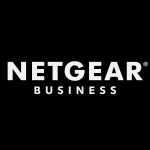What is our primary use case?
Aruba is moving to the cloud platform model. We are presenting solutions using Aruba Central to clients for the management of their infrastructure. The majority of the implementations we have are still currently are on-premises. Customers now are slowly implementing cloud solutions for Aruba. We have 80% on-premises and 20% migrating to the cloud version of the solution.
With Aruba Central, we can manage controllers, EAPs (Employee Assistance Programs), switches, et cetera. Everything in one place. So we can manage anything we need to using Aruba. Aruba on-premises wireless is something we use for education. It is mostly implemented in schools and in universities. We use it to establish APs (Access Points) around the campus to make sure there is coverage campus-wide. Then they have mobility controllers on-premises that control all the infrastructure.
Another use case is for companies that have branches from the data centers. At the prime location, they have APs powered within the company and Mobility Masters in the data center. The Mobility Masters cluster-connect to the mobility controllers and then control all the APs and all the wireless infrastructure. Then we have links connecting the branches. On the branches, we have small mobility controllers that feed all the information to and from Mobility Masters. That is, the Mobility Masters connect to mobility controllers and then the mobility controllers connect to the APs.
Portugal is a small country and our smallest companies always have EAPs. EAPs are a version of a solution from Aruba that the NAC (Network Access Control) AP has inside a virtual controller. These NAC APs control all the other APs.
How has it helped my organization?
It gives us a reliable, mature solution that we can roll out to our clients.
What is most valuable?
Wireless technologies, relatively speaking, are a new solution. The technical guys from Aruba are very good. The support is very good. It is very easy to implement the product. Another solution that Aruba has is the NAC and the ClearPass. ClearPass is a good solution for additional security of access points and it is integrated so it is very easy to deploy. It is very interactive and not so analytic as other solutions so, in my opinion. Aruba is a very good company — very good technology-wise — and they make very useful products.
What needs improvement?
Perhaps one of the things that I think Aruba can improve on is developing their current information channels. Aruba has a lot of information available about their products and to find the information you need is not always so easy. It is more complicated than it should be. I think that they are great and do have a lot of information available — probably all the information that any user really needs to do things themselves. They are doing things well and trying to do things in the right way. They should just improve more on the organization and searchability of the information to make it easier to find what you are looking for.
Buyer's Guide
Aruba Wireless
December 2025
Learn what your peers think about Aruba Wireless. Get advice and tips from experienced pros sharing their opinions. Updated: December 2025.
879,259 professionals have used our research since 2012.
For how long have I used the solution?
I am with the sales service for Arrow, Portugal which is a solutions company. My role is to help the partners in designing solutions. I am working with Aruba products as a partner and reseller for three years now.
What do I think about the stability of the solution?
Aruba Wireless is stable. Very stable. Because Aruba has already been around for more than 10 years or so, it is a mature product and a very stable product. If there is a problem, the support team is very good with working through the problems. When a client wants a new version, we have confidence in Aruba that everything has already tested and we have access to stable versions of the release. We have access to all the information for the versions whether they are the old ones or the new ones.
What do I think about the scalability of the solution?
My impressions about the scalability and the product is that it is highly scalable. You can start with a low quantity of access points — as low as one installation — and then scale it to thousands if you have to. You can do the upgrades in the mobility controllers to allow the growth of the infrastructure. Because of the way it is created, it is highly scalable and highly reliable.
Of course, we have plans to scale our own usage of the product. Because we work as a value-added distributor of Aruba in Portugal, we have to meet the needs of our client base which is growing all the time. We have plans to increase the implementation of the product in our market to meet those demands. It is partly because we are working with a superior product like Aruba that we are growing in our market.
How are customer service and support?
The Aruba technical support team is very good. They are very skilled people and can help you with the support you need when it comes to their products. They are very good at turning around a response within 24 hours. It is fast and helpful.
How was the initial setup?
In my experience the initial setup of the Aruba EAP solution is straightforward. We can call on all the APs and then you have everything connected. Now they also have a Soho gateway solution that it is integrated. It is very easy to turn on this solution. I can install the Soho add-on instantly for the Aruba solution. I think that they are doing very well to keep the customer in mind when building and testing their products for ease of setup and use.
Our deployment did not take a very long time. Even initially. For clients, the deployment takes more or less time than ours. It depends on the size of the implementation. If you have to do only 10 APs in a small deployment, it can take only two or three days to complete the whole thing. If you have a bigger implementation, it depends on the size of the project. It could take weeks for the deployment if it is a very large one.
What about the implementation team?
We did not have to use an integrator, reseller, or consultant for our deployment. We could do that ourselves. But we do work with all the integrators in Portugal because we help them to sell the solution so that they can implement it for the clients. We help them sell the product and then they do the deployments.
What other advice do I have?
The advice I would give to a customer that wants to implement this product is that they must have good support from a product partner. Try to find a certified partner to do the job of planning and implementation. This should be a certified HP partner to do the job as Aruba is an HP company. Choose the right partner, the right technical guy, and the right company to implement the solution for you. It will make sure you have the solution deployed in the way you need it to be done to fit your needs and expectations. That is the most important thing that I can think of.
On a scale from one to ten where one is the worst and ten is the best, I would rate this product as a nine-and-a-half.
Disclosure: My company has a business relationship with this vendor other than being a customer. Reseller.

















Wire Free offices...